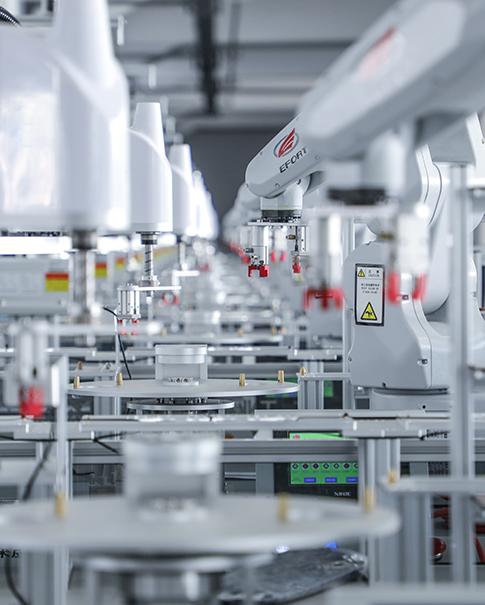In the current era of rapid technological development, the manufacturing industry is undergoing unprecedented changes. The rise of smart factories, relying on the in-depth application of automation technology, has injected new vitality into the traditional manufacturing industry and reshaped the industry landscape. More and more companies have realized that automation technology is not only a tool to improve production efficiency, but also the key to achieving sustainable development and enhancing competitiveness.
Production process: the leap from manual to intelligent
In the production process of traditional manufacturing, there are many manual operation links, low efficiency and prone to errors. With the help of automation technology, smart factories have achieved a leap from manual to intelligent production processes. Taking the automobile manufacturing industry as an example, the introduction of automated production lines has made automobile assembly more efficient and accurate. Robotic arms can complete welding, spraying and other tasks at extremely high speed and precision. Compared with manual operation, production efficiency has increased several times, and product quality is more stable. In the field of electronic manufacturing, automated equipment can complete the installation and welding of chips in a very small space, with a precision far exceeding that of manual operation, effectively reducing the defective rate. In addition, automated production lines can also collect production data in real time through sensors, analyze and optimize them in combination with artificial intelligence algorithms, realize dynamic adjustment of production processes, and further improve production efficiency and resource utilization.
Product quality: automation guarantees excellence
Product quality is the lifeline of the manufacturing industry, and automation technology provides a strong guarantee for improving product quality. In smart factories, automated testing equipment replaces traditional manual quality inspection. For example, in the food processing industry, the use of machine vision technology and automated testing instruments can conduct all-round testing of the appearance, weight, ingredients, etc. of food, without missing any minor flaws. Precision sensors can monitor parameters such as temperature, humidity, and pressure in the production process in real time. Once an abnormality occurs, the system will immediately issue an alarm and automatically adjust the production parameters to ensure that the product always meets the quality standards. This automated quality control mode not only improves the detection efficiency, but also avoids the interference of human factors in quality inspection, and truly realizes the excellence of product quality.
Enterprise management: data-driven intelligent transformation
The application of automation technology is driving the transformation of enterprise management towards data-driven intelligent direction. By deploying a large number of sensors and IoT devices, smart factories can collect data from various links such as production, equipment, and logistics in real time. After analysis and processing, these data provide accurate decision-making basis for enterprise managers. For example, by analyzing the equipment operation data, enterprises can predict equipment failures, arrange maintenance in advance, and reduce downtime; based on the combined analysis of production data and market demand data, accurate production can be achieved and inventory costs can be reduced. At the same time, the automated management system can also realize the rational allocation of human resources, automatically arrange personnel work according to production tasks, and improve the efficiency of human resource utilization. The intelligent transformation of enterprise management enables enterprises to make decisions more quickly and accurately when facing a complex and changing market environment.
Future Outlook: Automation Leads a New Journey for Manufacturing Industry
With the continuous development of technologies such as artificial intelligence, 5G, and big data, the application of automation technology in smart factories will be more in-depth and extensive. In the future, smart factories are expected to achieve a higher degree of automation and intelligence, and the entire process from raw material procurement, production and manufacturing to product sales and after-sales service will be seamlessly connected and intelligently managed. The manufacturing industry will also use automation technology to achieve green, efficient, and sustainable development and start a new journey.Email us
Reply within one working dayVisit us
32D Guomao Building, No.388, Hubin South Road, Siming DistrictDisclaimer : Featuredplc sells new and surplus products and develops channels for purchasing such products. This website has not been approved or recognized by any of the listed manufacturers or trademarks. Featuredplc is not an authorized distributor, dealer, or representative of the products displayed on this website. All product names, trademarks, brands, and logos used on this website are the property of their respective owners. The description, explanation, or sale of products with these names, trademarks, brands, and logos is for identification purposes only and is not intended to indicate any association with or authorization from any rights holder.
Copyright @2024 SalesPlc Limited. Sitemap
/ Blog
/ XML
/ Terms And Conditions
/ Privacy Policy
 Network Supported
Network Supported
